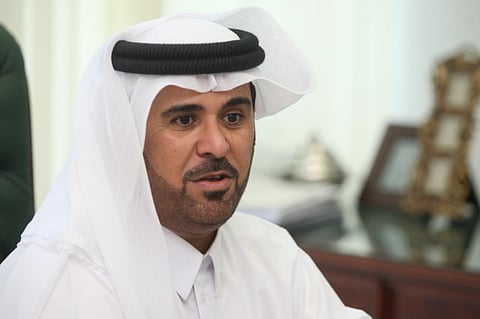New cop squad to watch Dubai homes and streets
Neighbourhood Watch Police adopts novel ways to give you peace of mind

Dubai: If a neighbour plays music to ear-zapping decibels into the wee hours, or if you see an exposed live wire or witness neighbours in fisticuffs and you want order restored, who do you call? The new cops on the block! They are not your regular patrol cops, but Dubai’s new Neighbourhood Watch Police.
Sample this: Around the block of villas or along the stretch of 201st Street in Al Rashidiya, officers are roving round-the-clock in community police squad cars or walking the beat, talking with residents and tackling real-life issues, such as resolving a street altercation.
“It’s a lot like the 24x7 neighbourhood watch you hear about in other major cities,” said Lt Col Ahmad Thani Bin Galita, Director of Crime Prevention Department at Dubai Police. “The only difference is it’s run by policemen, not civilians.”
Although initially developed for only certain neighbourhoods – Al Rashidiya, Al Muraqqabat and Bur Dubai – the plan is to cover the entire city, he said.
Officers, who are well-versed in Arabic, English and Urdu, operate round the clock in three shifts. And if the officer is not found doing his community patrol duties, he can be found in the Neighbourhood Watch Police office allotted in each district’s police station.
Dubai Police first experimented with the idea in 2012 for six months in Al Rashidiya. The programme is credited with helping push crime rates down by about six per cent and thefts by two per cent from the same period in the previous year, said Col Bin Galita.
Having policewomen join the new task force is not far off, he said. “We’re only taking on policemen, but anything is possible.”
Will they take on expatriates?
“Taking on expatriates is a whole different matter, given the fact that they are on the move most of the time,” said the officer.
The programme highlights the pattern by which communities get the support they need to keep crime at bay and curb disturbances.
A neighbourhood cop can issue a fine and even make arrests if the occasion calls for it.
“The aim of this programme is to prevent as much crime as possible. There is no better way to do this than by addressing problems while they are still small, before they turn into disasters,” he said.
“The policeman may be a law enforcer, but he also can be your friend. If you’re having some kind of a problem with the water or electricity or some issue with the municipality or etisalat, he’ll lodge a complaint and follow it up to make sure it’s addressed properly.
“He is someone who will drive around schools at the beginning of the school year to make sure cashiers lock up the safes properly to avoid thefts. He meets prominent figures of the district to raise awareness about issues like drug abuse or gang violence. He meets students to raise awareness against bullying,” he said.
The neighbourhood cop takes orders from the nearby police station commander, using a community-policing strategy that is common in many other cities.
When there’s a complaint he cannot address himself, he returns to the station to place the complaint in a box seen only by the station’s chief, who will then make sure it is addressed by concerned parties.



